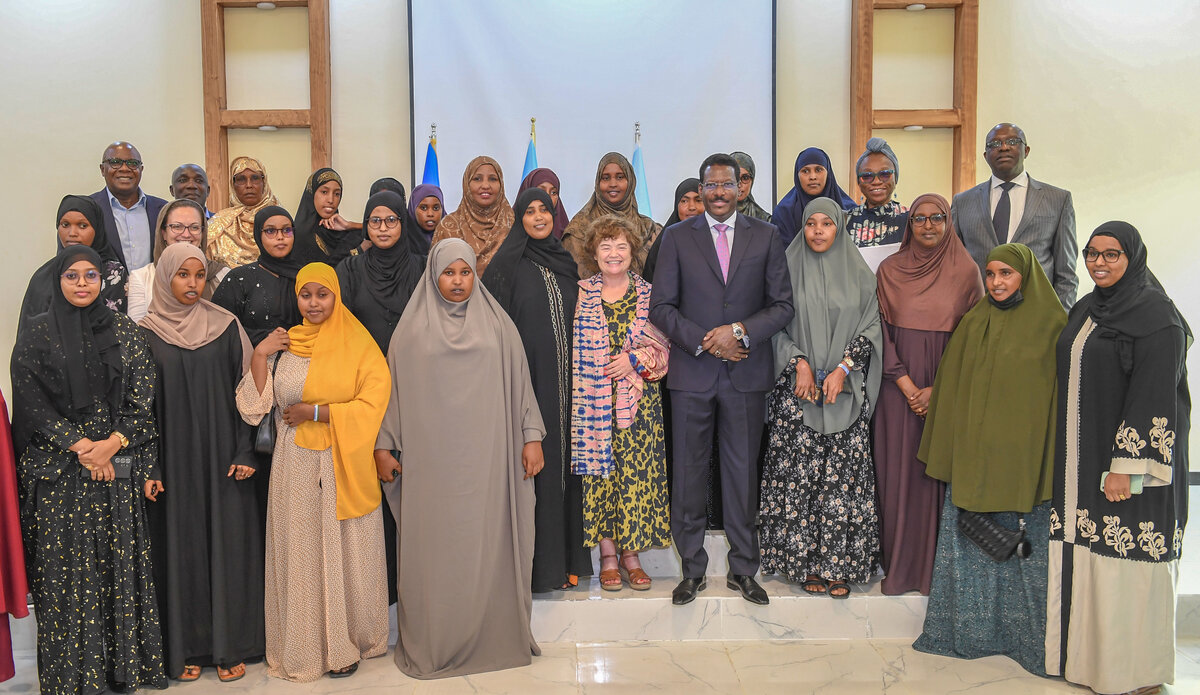On farewell visit, UN Special Representative hails Galmudug’s anti-FGM law
Dhusamareb – Continuing her farewell visits with Somali leaders, the top United Nations official for Somalia today visited Galmudug where she welcomed that Federal Member State’s recent achievements in the fight against female genital mutilation (FGM).
“Galmudug is the first Federal Member State to have passed legislation to outlaw all forms of female genital mutilation – FGM. And this is really an absolutely outstanding achievement, championed by the leadership of the President, but with amazing work done by the Minister of Women's Affairs and many, many women who have campaigned for this who I've been meeting over lunch today,” said the UN Secretary-General’s Special Representative for Somalia, Catriona Laing.
“These are brave women who stood up and said ‘this has to end.’ And they had a receptive voice, I’m glad to say, in the President,” she added.
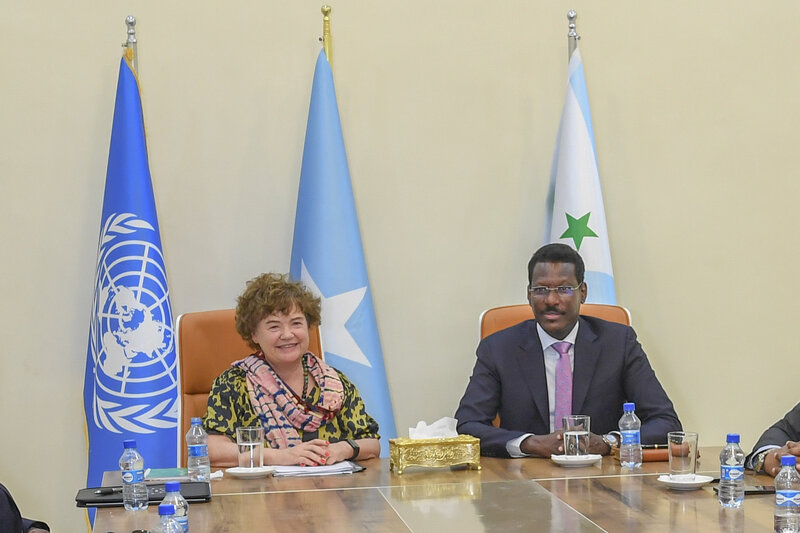
The UN Special Representative was addressing the media in the capital, Dhusamareb, following meetings with Galmudug’s President Ahmed Abdi Karie ‘Qoorqoor’ and members of his cabinet, as well as local civil society representatives.
Prior to the press conference, they all took part in a celebration of Galmudug’s passing of a law banning FGM there in March this year.
“This has been a subject that I wanted to put right in the forefront of my work here and I am very proud, very honoured to be a part of this, to play a small part and congratulate you, your excellency, the Minister of Women's Affairs, and all who have worked so hard to legislate to outlaw FGM – it is really, truly a remarkable achievement,” Ms. Laing said at that celebratory event.
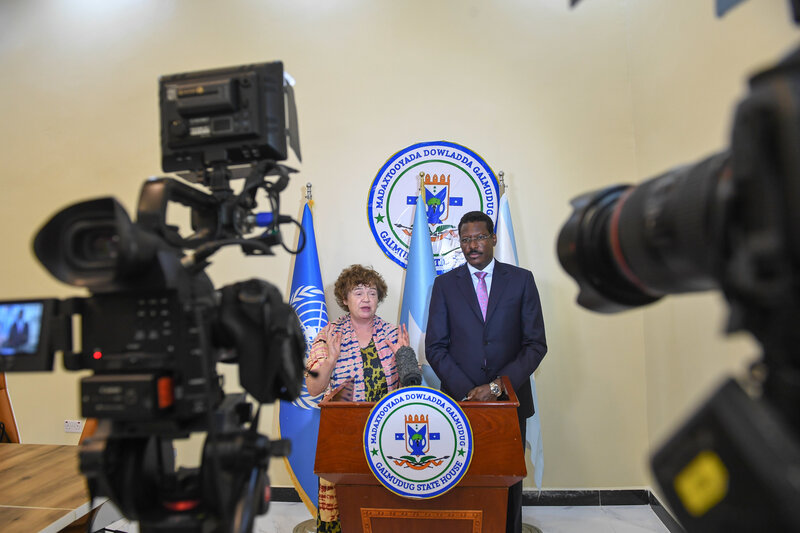
According to the UN Population Fund (UNFPA), FGM is a strong social and cultural norm in Somalia promoted by the societal/family expectations and fear of social sanction. The 2020 Somali Health and Demographic Survey found that around 99% of women and girls between the ages of 15-49 have undergone FGM.
However, progressively, there have been shifts in behavior and perceptions around FGM especially among young persons to indicate that extinction of the practice is possible – Galmudug’s legislation gives hope to such efforts and emphasizes the need for government and relevant agencies to be in the vanguard of promoting the rights of women and girls.
In another positive development, Somalia’s Federal Parliament recently adopted constitutional amendments which maintain the total ban on all forms of FGM, and provide an overall framework for the protection of women and girls. Anti-FGM laws like that of Galmudug spell out in more detail how the ban will be implemented, including providing support to survivors of FGM.
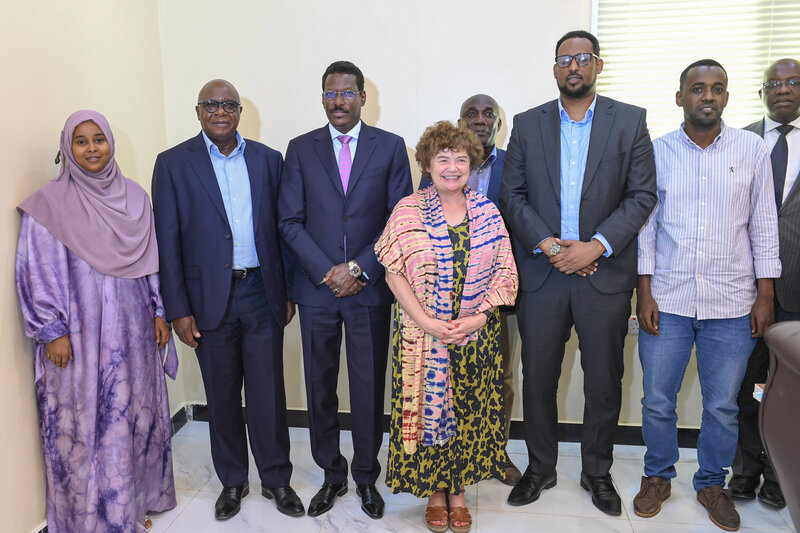
Three joint aims
In her remarks, the UN Special Representative said the United Nations and the Galmudug administration will set up a joint team to carry out three aims: implementing the legislation; encouraging other Federal Member States to follow Galmudug’s lead; and having Galmudug’s example spread even further afar.
“Here in Galmudug, legislation is step one. But implementation, of course, is challenging because legislation in itself doesn't change cultural behaviours – deep cultural practices where families feel they are doing their daughter a service by cutting her, and, of course, it is quite the reverse. It is dangerous, harmful, and traumatic. So changing people's mindsets will take time. But we want to work with you on that through education in particular,” Ms. Laing said.
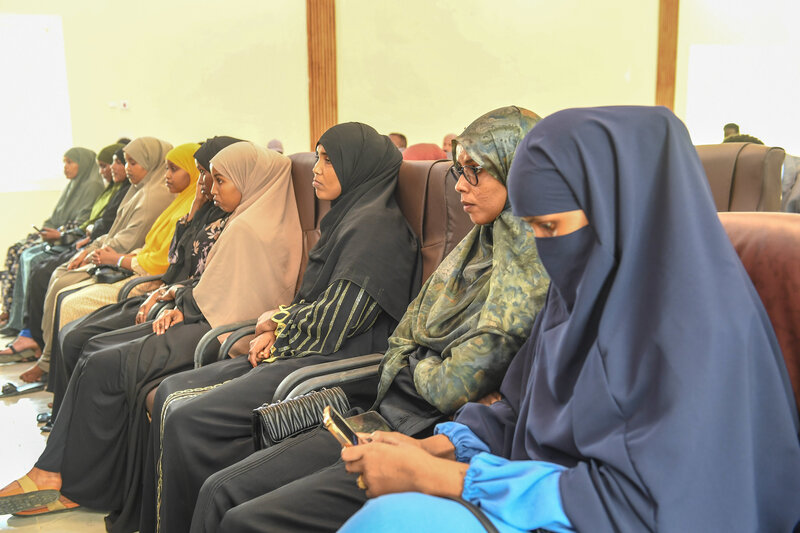
She went on to say that Somalia’s other Federal member States could follow the example of Galmudug, and suggested an upcoming National Consultative Council (NCC), which brings Somali leaders together to discuss national matters, could serve as a venue for discussing FGM.
“I'd like to see the President as he discusses issues at the NCC [National Consultative Council] – and this is an appeal to you, Mr. President – the next NCC should have FGM on the agenda,” Ms. Laing said.
“And thirdly, let's not just leave it at Somalia,” she continued. “Let Somalia be the champion for the world on this – one of the many things that Somalia can demonstrate its leadership and its progress. So, we have a lot of work to do ahead.”
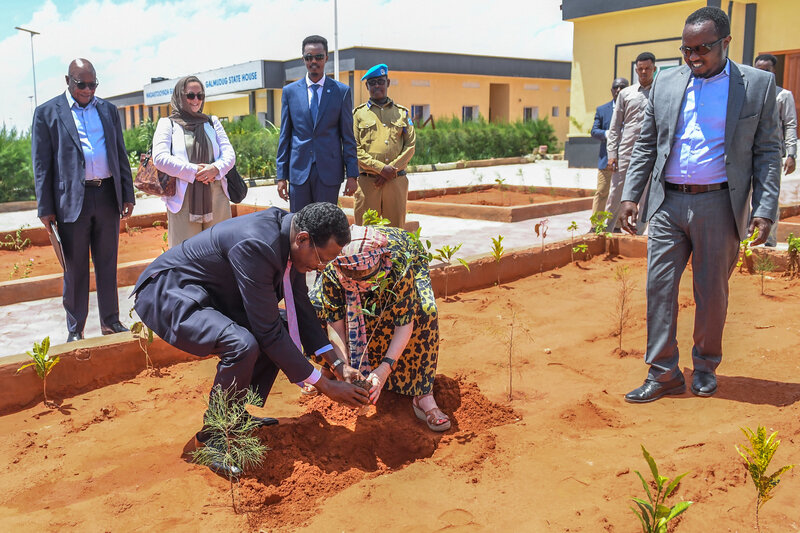
New UN office
While in Dhusamareb, the UN Special Representative and the President visited the Hero Drogo camp site, the location at which a United Nations office is being built.
“We had the opportunity to visit the progress this morning and to see how well that is coming along. So that will be an [UNSOM] office… but will also be for the UN Country Team – UNICEF [UN Chidren’s Fund], World Food Programme (WFP) and others – who want to deepen their partnership here in Galmudug.
The new UN premises are expected to be completed by the end of 2024. Currently, the UN has similar offices in the country’s four other Federal Member States: Jubaland, South West State, Hirshabelle and Puntland.
The UN Special Representative completes her assignment later in May and has been having farewell meetings with the leaders of Somalia’s Federal Member States, as well as with the top officials of the Federal Government of Somalia.
 UN
UN
